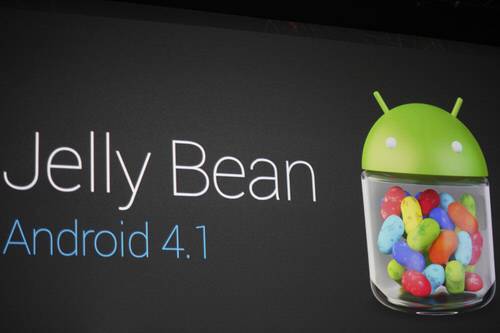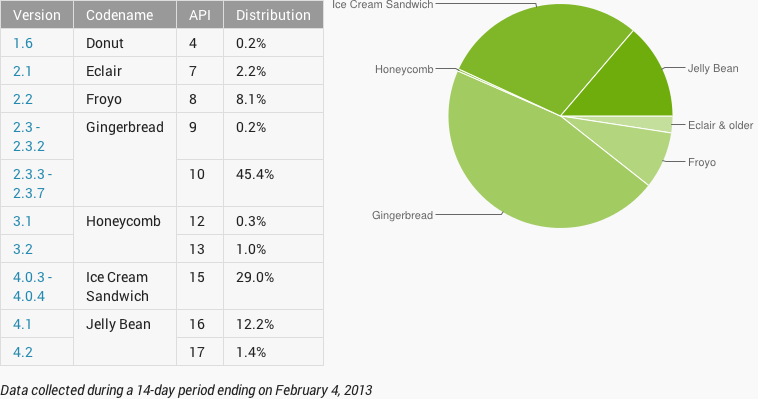
For years one rap on Android has been that most Android users were still using an older version of the operating system – Gingerbread, aka Android 2.3, which was first introduced in December 2010. Nothing wrong with Gingerbread, mind you, but it wasn’t the latest and greatest.
With Apple phones, when a new OS version comes out, most users get it, so everybody stays on the cutting edge. In the world of Android, each phone-maker rolls out upgrades on a different schedule, which also varies by model. And, unfortunately, most of those hardware companies have been reluctant to push upgrades, because (a) it’s a pain in the neck; and (b) if you really want the latest version of Android they’d rather you just went out and bought a new phone. That’s not the case for Google’s Nexus models, which always get upgrades.
In other words, you buy an Android phone and unless you’ve bought a Nexus there’s a chance you’ll be stuck with the same OS for two years, or until you get your next smartphone. At the very least you’ll probably be sitting around waiting for a long, long time to get the good stuff.
For those reasons Gingerbread remains the most widely used version of Android, even though Google has put out three subsequent versions, called Honeycomb (aka 3.1), Ice Cream Sandwich (aka 4.0) and Jelly Bean (aka 4.1 and 4.2).
But new numbers from Google show Ice Cream Sandwich and Jelly Bean starting to take off. In a survey done over 14 days, Google says 45.6% of Android devices were running Gingerbread, while Ice Cream Sandwich and Jelly Bean, if taken together, now total 42.6%.
To be sure, most regular people don’t know or care what version of the operating system they’re using. Many people using phones made by Samsung, HTC or Motorola might not even know they’re using Android, or that Android was created by Google. All they know is that they’ve got a smartphone and it can browse the Web, get email, and run some apps.
Nevertheless, for the Android ecosystem, the shift to newer versions is a good sign. Gingerbread was and is perfectly fine, but the experience on Jelly Bean is far, far better.


















